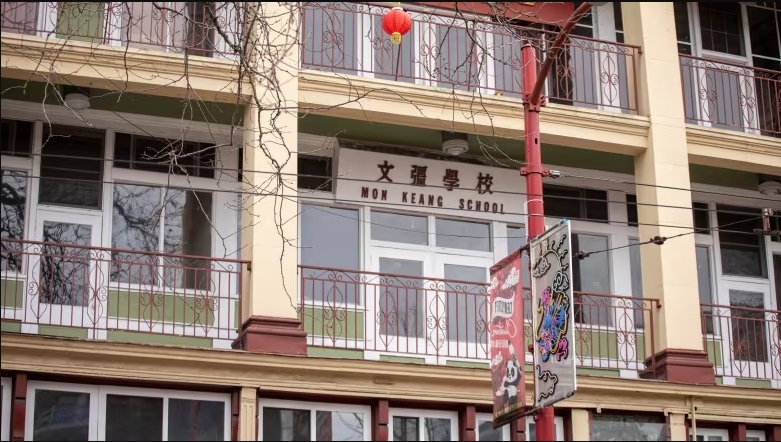Historic Cantonese School Reopens in Vancouver Amid Renewed Demand
Subhadarshi Tripathy
11/20/20242 min read


After more than a decade of closure, the Mon Keang School, one of Canada’s oldest Cantonese language schools, has reopened its doors in Vancouver’s Chinatown. The school, which ceased operations in 2011 due to low enrolment, has experienced a resurgence in interest, particularly among adults eager to reconnect with their Cantonese heritage.
“There’s a growing desire for people to either learn or reconnect with their Cantonese roots,” said Aynsley Wong, a director of the Wong’s Benevolent Association, which operates the school.
The school’s reopening reflects a broader cultural effort to preserve Cantonese, a language under pressure both globally and locally. Although historically dominant among Chinese communities in Canada, Cantonese has faced a steady decline in usage, supplanted by Mandarin due to shifting immigration trends and the Chinese government’s push to promote Putonghua (Mandarin) as a national standard.
Cultural Significance of Cantonese
Cantonese and Mandarin are distinct languages, differing in vocabulary, grammar, and pronunciation. While they share writing systems, they are not mutually intelligible in spoken form. Advocates argue that preserving Cantonese also safeguards cultural traditions and unique expressions embedded in the language.
“The perception that Chinese is a single language is misleading,” explained Zoe Lam, a lecturer in Cantonese at the University of British Columbia (UBC). “Cantonese holds its own identity and linguistic value.”
Globally, Cantonese faces challenges even in its heartlands. In Guangzhou and Hong Kong, the increasing prevalence of Mandarin due to internal migration has altered the linguistic landscape. Families in traditionally Cantonese-speaking areas now frequently switch to Mandarin in daily interactions, raising concerns about the language’s survival.
Hong Kong, where 90% of the population still speaks Cantonese, remains a stronghold, but political pressures and educational reforms favoring Mandarin have sparked fears of further erosion. Recent incidents, such as the targeting of Cantonese advocacy groups in Hong Kong under national security laws, highlight the complex interplay between language and politics.
A Revival in Canada
In Canada, however, Cantonese retains its cultural resonance, particularly among descendants of immigrants from Hong Kong and Guangdong province. Unlike in China, Cantonese and Mandarin are viewed as equally valuable by many learners, who choose based on personal or familial connections.
For siblings Sarah and Miles Wong, who enrolled in Mon Keang School’s fall classes, learning Cantonese is a way to reconnect with their roots. “It’s about feeling closer to where our grandparents came from,” said Sarah.
As part of their coursework, students practice Cantonese in real-world settings, such as shopping in Vancouver’s Chinatown. These efforts, however modest, are seen as critical to sustaining the language in Canada.
“It’s small steps like these that keep Cantonese alive,” said instructor Raymond Pai of UBC.
News
Stay updated with the latest BC news stories, subscribe to our newsletter today.
SUBSCRIBE
© 2025 Innovatory Labs Inc.. All rights reserved.
LINKS
